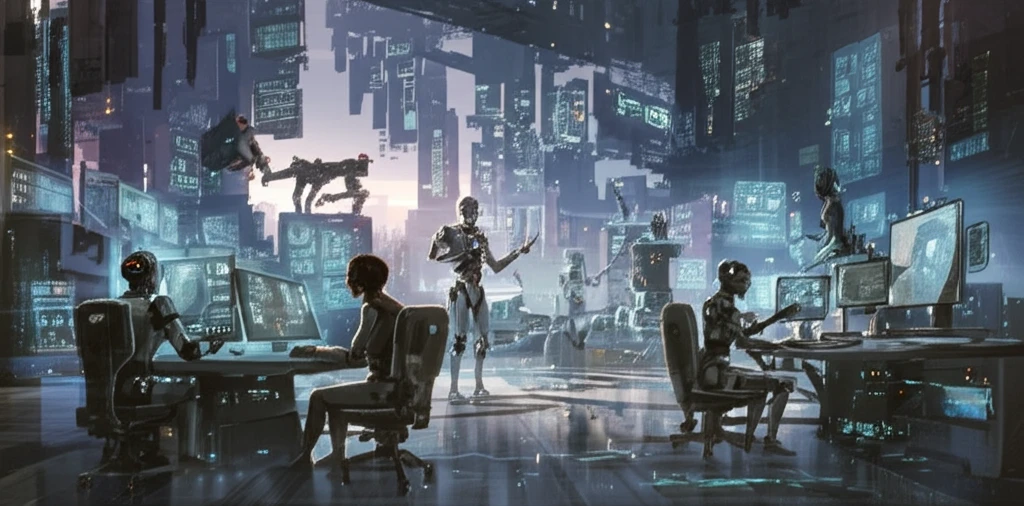
Will AI Steal Your Job? Navigating the Future of Work in the Age of Artificial General Intelligence
"Discover how Artificial General Intelligence (AGI) could reshape the job market and what you can do to prepare for the coming changes in automation and wages."
The rise of artificial intelligence (AI) promises unprecedented advancements, but it also stirs anxieties about widespread job displacement. The concept of Artificial General Intelligence (AGI), where AI systems can perform any task a human can, is no longer confined to science fiction. Leaders in both AI research and industry are urging us to consider the implications of this potential reality.
This article unpacks how the transition to AGI might unfold, what it could mean for your job, and how wages and the overall economy could be affected. By examining different scenarios and the underlying economic forces, we aim to provide a clearer picture of a future where AI plays an increasingly dominant role.
We'll explore how human work can be broken down into smaller tasks, each with varying levels of complexity, and how technological advancements make automating these tasks increasingly feasible. This analysis will reveal the critical factors that determine whether wages rise or fall in the face of advancing AI.
The Task Complexity Spectrum: Will There Always Be Work for Humans?

Imagine every task you do at work, from the simplest to the most complex, placed on a spectrum. Some tasks, like basic data entry, are easily automated. Others, requiring creativity, critical thinking, or complex problem-solving, have been harder to automate – until now.
- Unbounded Complexity: This scenario suggests that no matter how advanced AI becomes, there will always be tasks too complex for it to handle. Think of truly novel research or artistic creation.
- Bounded Complexity: This scenario proposes that there's a limit to the complexity of tasks humans can perform, and therefore, AI could eventually automate everything.
Preparing for an Uncertain Future
The future of work in the age of AGI remains uncertain, but understanding the potential scenarios and the economic forces at play is the first step towards preparing for it. By focusing on adaptability, continuous learning, and developing skills that complement AI, you can increase your resilience and thrive in a rapidly changing job market.
